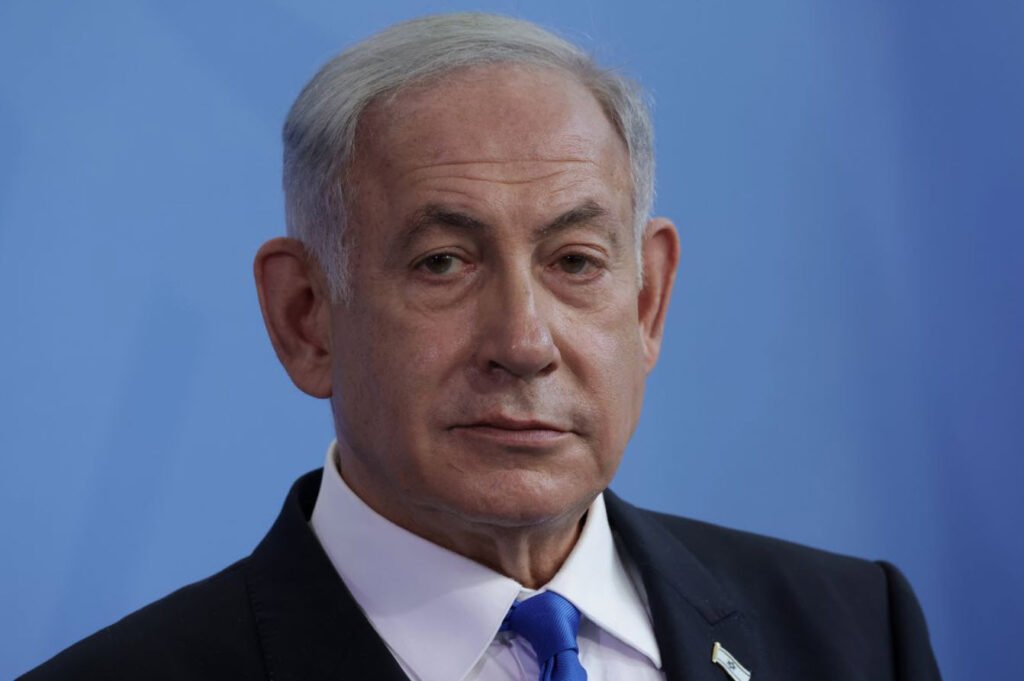Israel’s Prime Minister, Benjamin Netanyahu, has announced that he will be fully sedated to undergo surgery for a hernia. The operation is scheduled to take place after a meeting of his war cabinet this evening, as announced by his office. The hernia was discovered during a routine checkup last night.
Justice Minister Yariv Levin, who is also the deputy prime minister and a close confidant of Mr. Benjamin Netanyahu, will temporarily fill his role during the procedure. This medical development comes at a time when thousands of Israelis are expected to rally to express their frustration with his government and urge him to resign.
https://twitter.com/KaceeRAllen/status/1774446291549855965
Mr. Benjamin Netanyahu, 74, previously underwent a hernia operation in 2013 and had a pacemaker fitted last year. His health has been a topic of public interest, especially considering the political climate in Israel.
In the backdrop of these developments, two Palestinians were killed and 15 injured in an Israeli air strike on a tent camp inside a hospital in central Gaza. The strike hit one of several tents in the courtyard of Al Aqsa Martyrs Hospital in Deir al Balah, where thousands have been sheltering for months after fleeing Israeli bombardments elsewhere.
Israel’s military later stated it carried out an airstrike against a command center operated by the armed group Islamic Jihad and killed a senior militant. The military emphasized that the strike was precise, intending to minimize harm to uninvolved civilians in the area of the hospital. It added that the Al Aqsa hospital building was not damaged and its functioning was not affected.
Israel argues that hospitals in Gaza are used by Hamas and other militant groups as bases and has raided a number of hospitals. Gaza’s Hamas-run health ministry said at least 32,782 Palestinians have been killed since the start of the war. The ministry’s count does not differentiate between civilians and fighters, but it has said women and children make up around two-thirds of those killed.
Israel says over one-third of the dead are militants, though it has not provided evidence in support, and blames Hamas for civilian casualties because the group operates in residential areas. Some 1,200 people, mostly Israelis, were killed when Hamas rampaged into southern Israel on 7 October and kidnapped some 250 others.
Earlier this week, the World Court unanimously ordered Israel, which is accused by South Africa of genocide in Gaza, to take all necessary and effective action to ensure basic food supplies reach the territory’s population, which is teetering on the brink of famine.
Meanwhile, Egypt hosted an Israeli delegation for a new round of ceasefire talks, though there is little expectation of any breakthrough. The Archbishop of Canterbury Justin Welby used his Easter sermon to call for “love in action” to help those caught up in conflict, including the children of Gaza and hostages held by Hamas.
The archbishop said: “Let us seek action amongst the starving children of Gaza and Sudan – and the parents who try desperately to find food for them.” He also called for “action for the hostages held by Hamas” and “for those in the trenches and cities and fears of Ukraine.”
This complex situation presents a challenging backdrop for Mr. Netanyahu’s surgery and the political unrest in Israel. The world watches as these events unfold, hoping for peace and stability in the region.




[…] issued a travel advisory for its citizens, advising against all non-essential travel to Iran and Israel until further notice. This decision comes in light of the current global situation and is aimed at ensuring the safety […]